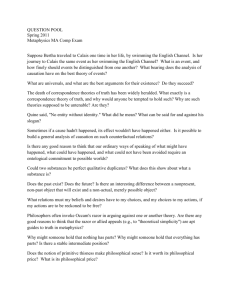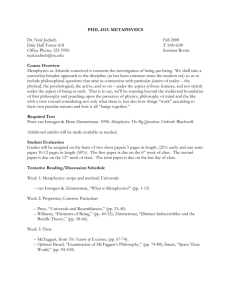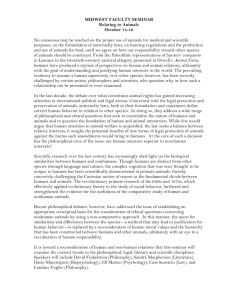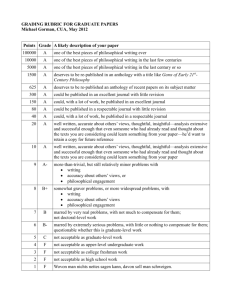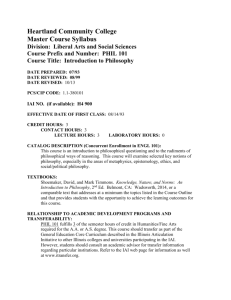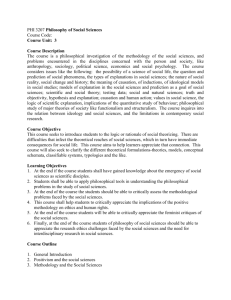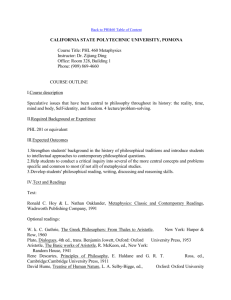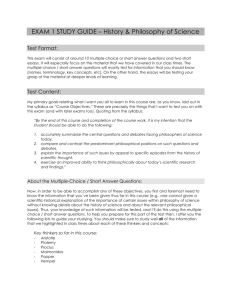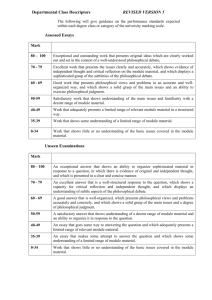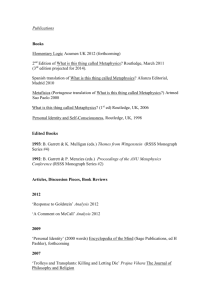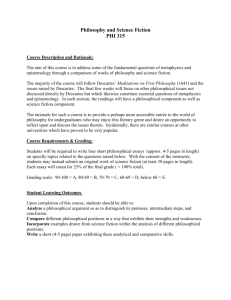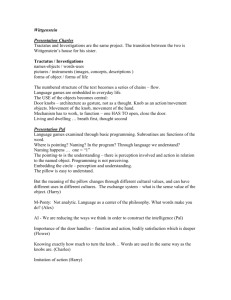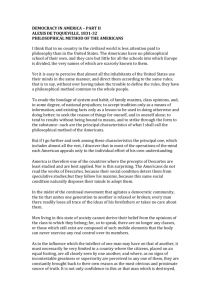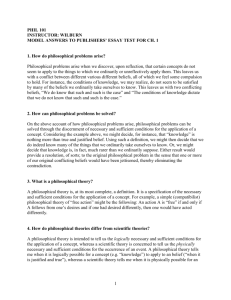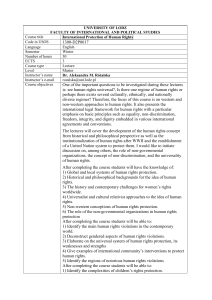doc
advertisement
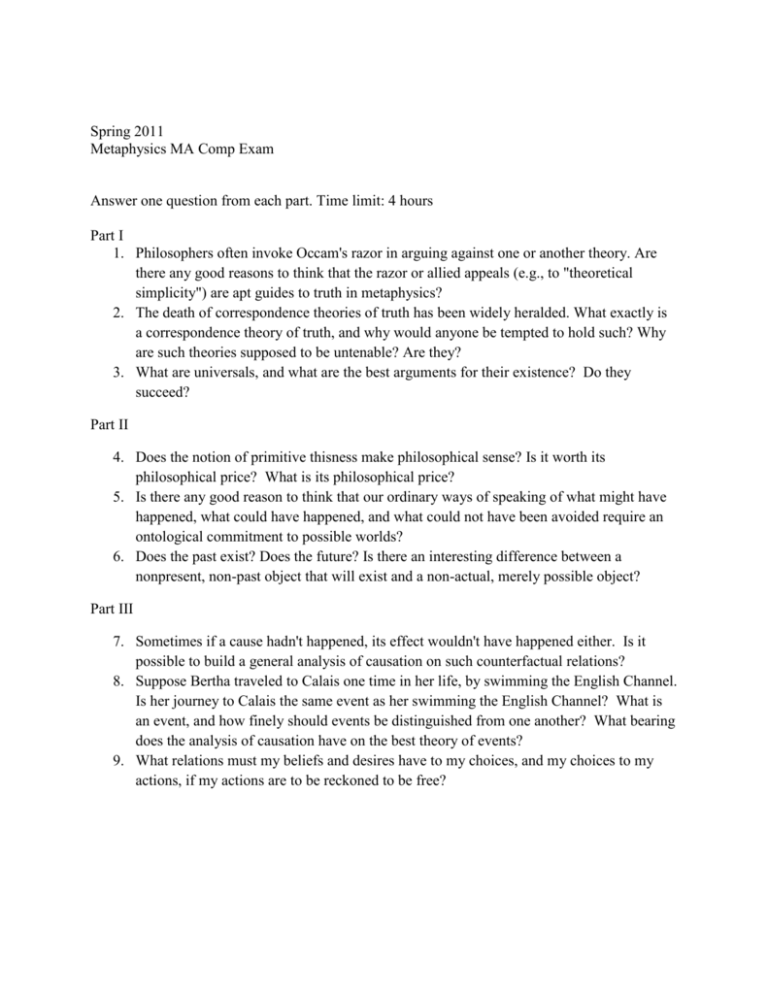
Spring 2011 Metaphysics MA Comp Exam Answer one question from each part. Time limit: 4 hours Part I 1. Philosophers often invoke Occam's razor in arguing against one or another theory. Are there any good reasons to think that the razor or allied appeals (e.g., to "theoretical simplicity") are apt guides to truth in metaphysics? 2. The death of correspondence theories of truth has been widely heralded. What exactly is a correspondence theory of truth, and why would anyone be tempted to hold such? Why are such theories supposed to be untenable? Are they? 3. What are universals, and what are the best arguments for their existence? Do they succeed? Part II 4. Does the notion of primitive thisness make philosophical sense? Is it worth its philosophical price? What is its philosophical price? 5. Is there any good reason to think that our ordinary ways of speaking of what might have happened, what could have happened, and what could not have been avoided require an ontological commitment to possible worlds? 6. Does the past exist? Does the future? Is there an interesting difference between a nonpresent, non-past object that will exist and a non-actual, merely possible object? Part III 7. Sometimes if a cause hadn't happened, its effect wouldn't have happened either. Is it possible to build a general analysis of causation on such counterfactual relations? 8. Suppose Bertha traveled to Calais one time in her life, by swimming the English Channel. Is her journey to Calais the same event as her swimming the English Channel? What is an event, and how finely should events be distinguished from one another? What bearing does the analysis of causation have on the best theory of events? 9. What relations must my beliefs and desires have to my choices, and my choices to my actions, if my actions are to be reckoned to be free?
